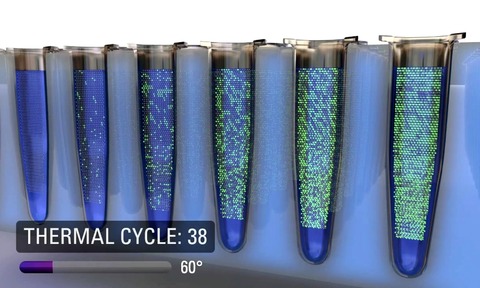
ddPCR technology has been found to be suitable for routine analysis of genetically modified organisms.
In a study funded by the Slovenian Ministry of Economic Development and Technology, Metrology Institute (MIRS), it was found that Droplet Digital PCR could replace or be a good alternative to qPCR, the current benchmark in GMO quantification.
The paper that Droplet Digital PCR (ddPCR) technology is more accurate and reliable than real-time quantitative PCR (qPCR) for quantifying GMOs, especially at low levels.
Dr Dany Morisset, was the paper’s lead author and is a researcher at Slovenia’s National Institute of Biology.
The most common technique for quantifying the presence of GMOs is qPCR, thanks to its accuracy and precision.
However, according to Morisset, qPCR is often unreliable and inaccurate when quantifying very small numbers of DNA targets or when those targets are part of complex matrices such as foods or feed that contain inhibitory substances.
Morisset learned about Droplet Digital PCR technology, which was developed as an alternative to cdPCR with an easy workflow, low cost, and high throughput.
Commercialised by Bio-Rad as the QX100 Droplet Digital PCR system the ddPCR system provides thousands more partitions than in cdPCR, resulting in greater precision and per-sample costs that are up to 150 times less.
The Slovenian researchers analysed food and feed matrices containing different percentages of a well-characterized GMO transgene.
They found the ddPCR system’s performance parameters (precision, accuracy, sensitivity, and dynamic range) complied with the guidelines of the EU-RL GMFF and were comparable or superior to those for qPCR.
Compared with the conventional qPCR assay, the ddPCR assay offered better accuracy at low target concentrations and greater tolerance to inhibitors found in matrices such as wheat flour and feed.
Morisset’s findings reveal that ddPCR is a less expensive alternative to qPCR due to the lower number of reactions.
Droplet Digital PCR capitalises on its ability to duplex as opposed to qPCR’s traditional approach of performing separate assays for both control and transgene targets.
The ddPCR assay doesn’t require reactions for a standard curve or dilutions due to lower anticipated inhibition.




